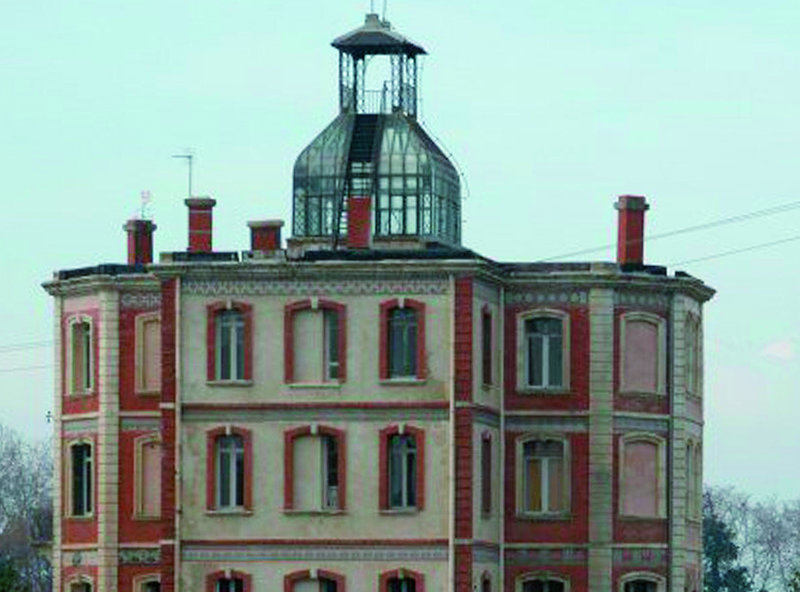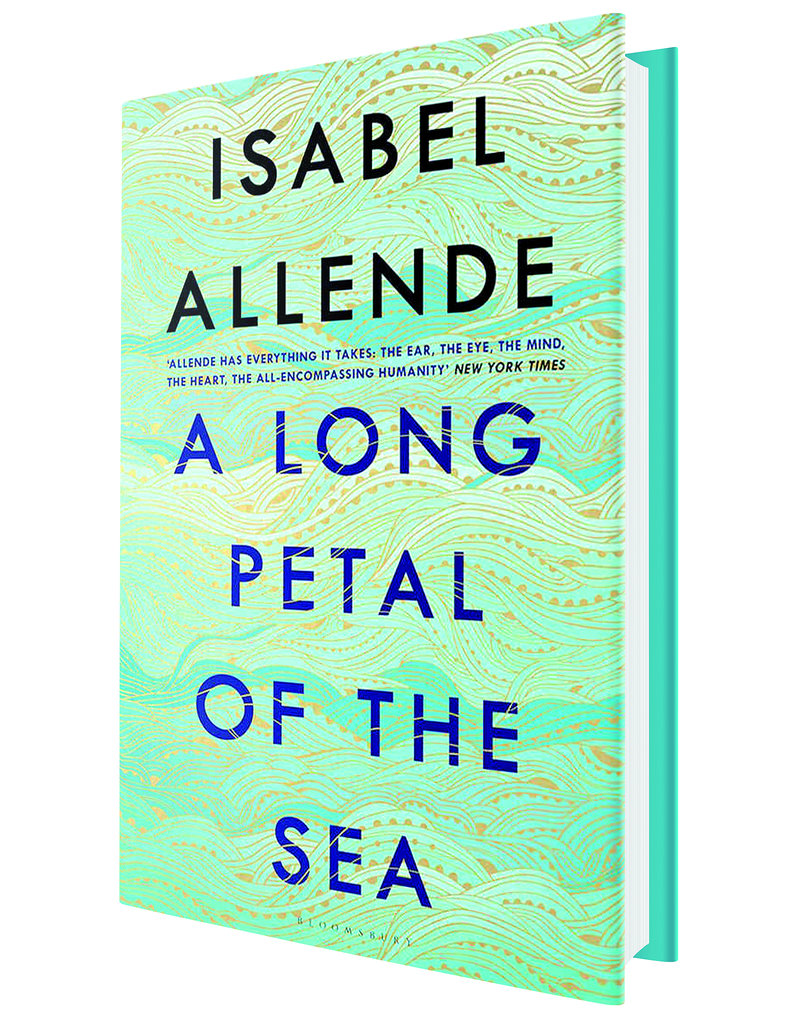LOVE IN TIMES OF FASCISM
Isabel Allende’s latest novel deals with two tragedies 34 years apart: the defeat in the Spanish Civil War and the 1973 coup in Chile. The Catalans Víctor and Roser, her main characters, link both disasters.
The book’s title comes from a line in a Neruda poem to describe Chile itself. Pablo Neruda is a presence throughout the novel, his verses quoted at the head of each chapter and the man himself appearing several times. As a diplomat, Neruda organised the evacuation on the cargo ship Winnipeg of 2,000 Spanish refugees from Bordeaux to Valparaiso at the end of the Civil War. Víctor and Roser owe their lives to the Winnipeg initiative. Allende writes in her preface: “This is a story of displacement and love, of sorrow and hope, of a couple trying to find their place in a world in shambles, torn apart by violence.”
Catalan Republicans
The novel runs from 1936 to 1989 and ranges from Teruel and Catalonia during the Civil War to a French prison camp, exile in Chile and refuge in Venezuela. Roser is the kind of strong and intelligent woman familiar to readers of Allende novels: idealised perhaps, but attractive. She started life as a barefoot, illiterate goatherd and ended up an accomplished pianist. Víctor is a doctor and the brother of Guillem, the father of her child. After Guillem is killed in the War, Víctor and Roser make a marriage of convenience to get onto the Winnipeg. Over the years this arrangement turns into a great love story.
The book takes time to get going. The first part suffers from too much background exposition. Allende has done her research into the Spanish Civil War, but it is heavily worn. Here’s an example:
“The conservatives and Catholic Church, who had invested money, propaganda and apocalypse sermons… were defeated… by the Popular Front, a coalition of left-wing parties.” (p.15)
In this sort of sentence, she fails to tell her story through her characters and/or leave her readers to find out the background facts for ourselves. The first part also contains some stodgy, clichéd writing, surprising in someone so skilled, such as “the cheerful, valiant Basque who had witnessed so much death and suffering…” (p.59).
As her story moves to Chile, it becomes much surer-footed. Allende introduces the del Solar family who will act throughout the novel as a right-wing foil to Roser and Víctor. However, she is not Manichean in her comparison of Chilean conservatives and Catalan republicans. She is subtler in two ways: her characters are rarely one-dimensional and they change over the decades.
Fascism and Feminism
Both the capricious Ofelia and her brother Felipe del Solar are brought up in conservative, traditionalist values. Ofelia finally runs up against the realities of women’s position and her beauty and carefree vanity are crushed. Felipe supports the Pinochet coup, but is then disgusted by the dictatorship’s excesses. Juana, the stubborn servant of the del Solar family, and Laura the weak mother are also powerful portraits. What Allende achieves well are not just these memorable stand-alone characters, but the relationships between the members of this family: the father Isidro both dotes on Ofelia and mistreats her; Juana and Felipe are close – the servant still calls him ‘niño’ even when he is 80 years old; more conventionally, the dishonest Father Urbina dominates Laura with his pious repression.
It is in these characters, particularly the women but not only, and in the long sweep of her plot that Allende shows her strengths. The novel includes several real characters: the “so energetic, determined, and insomniac” Salvador Allende, with whom Víctor plays chess at night; Neruda, whom Isabel Allende adores and catches very convincingly (though she sidesteps his Stalinist prejudice when choosing who could board the Winnipeg); and the Swiss nurse Elisabeth Eidenbenz, the founder of the Maternity Home at Elne, with whom Víctor falls in love during the Civil War. Roser’s baby is born at Elne: in the concentration camp on the beach at Argelès, neither mother nor baby had much chance of survival.
Politically, Allende is on the side of the angels. She is feminist and anti-racist. Franco and Pinochet are anathema to her, but she does not write Politics with a capital P. Economic and political analyses are not her interest. Psychology and emotions are her focus. Her misery that Salvador Allende’s attempt to bring socialism to Chile was destroyed underlies the story, as a constant unexpressed lament. Isabel Allende is a sentimental writer, adept at tugging at her readers’ heartstrings, but this does not mean she falsifies emotion. She tells the stories of people defeated by war and fascism, but triumphant in their personal lives. Víctor and Roser, even Ofelia, are not permanently crushed, as they endure to old age and some self-knowledge.
books
Passionate Reactions
Isabel Allende burst on the literary scene in 1982 with La casa de los espíritus, a powerful story of several generations of a Chilean family, which became a worldwide bestseller. The broad canvas of La casa de los espíritus, the condemnation and explanation of the Pinochet dictatorship and the use of historical figures like Neruda and Salvador Allende are repeated in A Long Petal of the Sea. She has published 26 books, and is the Spanish language’s most popular living author, with 75 million books sold.
Is she any good, though? She inspires passionate reactions. Her compatriot Roberto Bolaño couldn’t stand her and savaged her writing; her myriad readers adore her. The hatred (not too strong a word) she arouses has much to do with envy; and with intellectual snobbery. Her novels confound critics because they stand on the border between popular, middle-brow writing and sophisticated, psychological literature. .
Allende was born in Lima in 1942. Before becoming a full-time writer, she worked for the UN, then as a teacher and journalist. Her life under threat, she went into exile in 1975, first to Venezuela, then California, where she has lived ever since. She has said that she feels guilty for leaving Chile: perhaps she should have stayed to fight Pinochet. Yet had she stayed, she says, she would not have become a writer.
She had two children in the 1960s with her first of three husbands. Her daughter died of porphyria in 1992, which inspired her to write the autobiographical Paula (1994).




